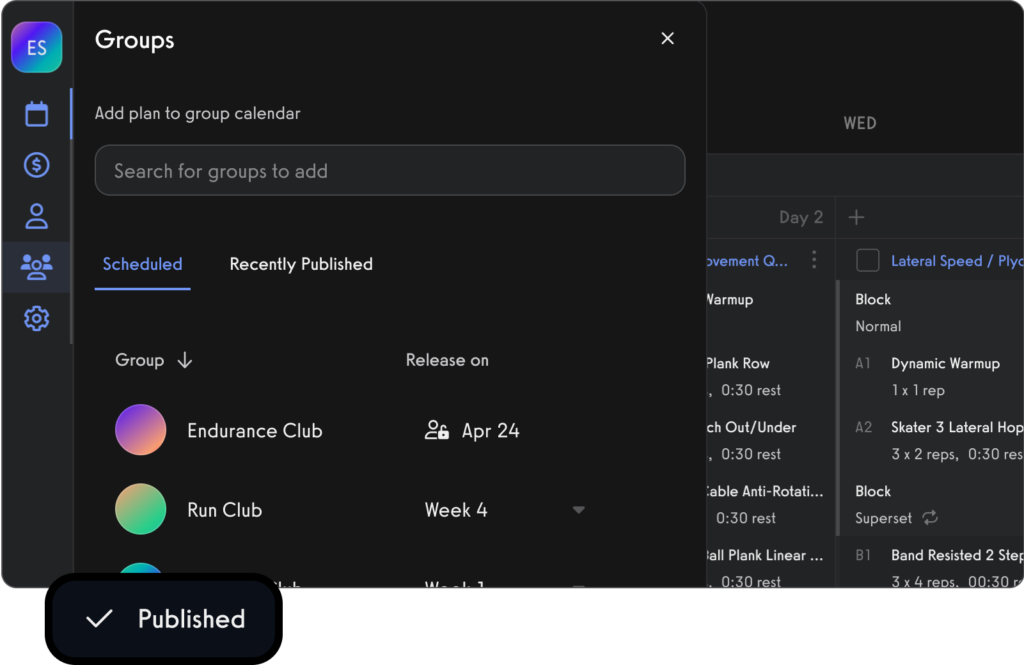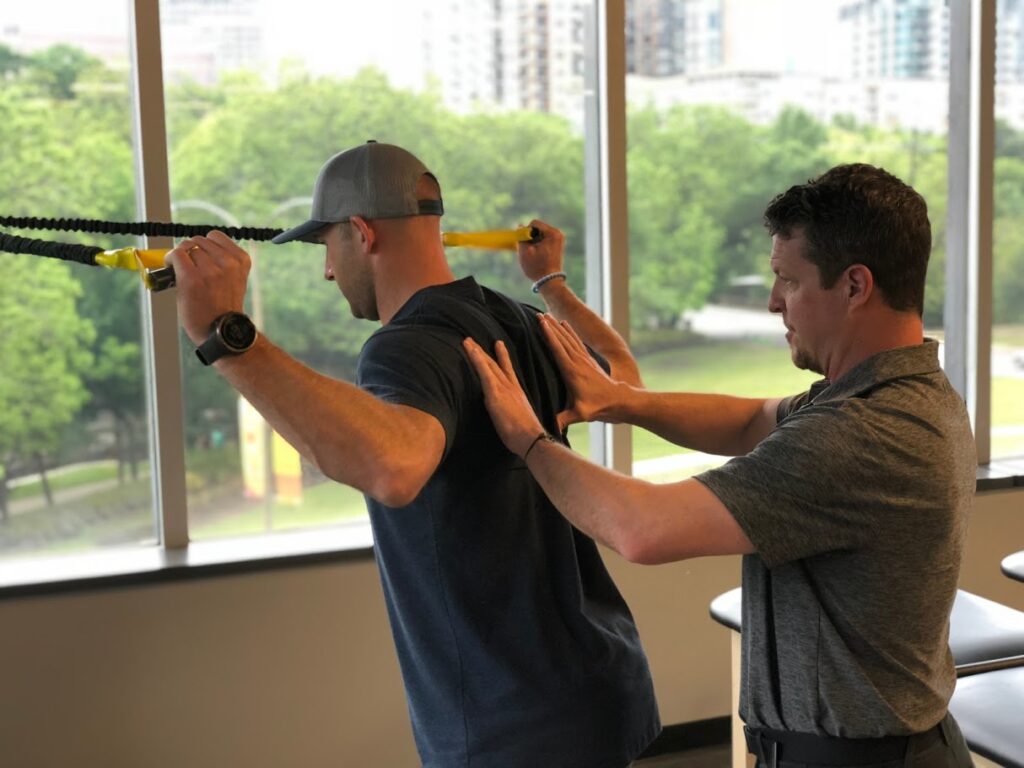
Use this free personal trainer independent contractor agreement template to modify as needed for your fitness business.

Are you a personal trainer looking to establish your own independent contractor business, or are you a gym owner wanting to enlist the services of personal trainers as independent contractors for your gym? If so, it is crucial that you have a comprehensive and legally sound personal training independent contractor agreement in place.
In this article, we will explore the importance of having such an agreement, the benefits of using a template, key elements to include, customization options, legal compliance, protection of rights and interests, essential clauses, negotiation and drafting tips, common mistakes to avoid, understanding the rights and obligations of both parties, handling disputes and termination, maintaining positive client relationships, ensuring confidentiality and non-compete clauses, and the importance of regular review and updates. So, let’s dive in and explore these topics in detail!

Use this free personal training independent contractor agreement template and then use this comprehensive article which provides a step-by-step guide and customizable template to help you create a solid agreement that protects both parties involved.
And, of course, managing your fitness business online with the best gym management software and the best personal training software means that you can easily create personal training proposals to send to clients with email, SMS, and in-app messaging marketing cadences, you can create fitness session plans, waivers, forms, fitness assessments, lead forms, registration forms, offer online booking, workout plans, and much more.
Use the Exercise.com workout plan creator to create your workout plans and fitness assessments.

Publish your custom branded fitness apps to iOS and Android so you can offer a premium experience to your community.

Run fitness challenges, create online workout groups, do distance training, and of course, deliver fitness assessments and workouts, all right within the Exercise.com platform (custom branded to your brand).


“Developing an easy intake system with my apps and ways to scale the delivery of workouts has been huge. Working with 20-30 individuals who each have specific goals and restrictions can be challenging, but your platform makes it easy to organize everyone’s programs and put a plan together that will get them the best results possible. The simple, effective tools help expand and simplify my coaching process.”
Dean Somerset Owner, Somerset Fitness[Your Business Name or Your Name – Personal Training]
Independent Contractor Agreement
This Agreement is made and entered into this [Date] by and between Your Business Name/Your Name, and Contractor’s Name.
1. Engagement and Services:
Company hereby engages Contractor to provide personal training services as an independent contractor. Contractor agrees to provide these services in accordance with the terms and conditions set forth in this Agreement. Services to be provided may include, but are not limited to, the following: [List specific services, e.g., individual training sessions, group classes, program design].
2. Contractor Status:
Contractor is engaged as an independent contractor. Nothing in this Agreement shall be construed as creating an employer-employee relationship, partnership, or joint venture between Company and Contractor.
3. Compensation:
Contractor shall be paid [compensation details, e.g., hourly rate, commission, flat fee per session]. Payment will be made on [payment schedule, e.g., weekly, bi-weekly, monthly].
4. Term and Termination:
This Agreement shall commence on [start date] and shall continue until terminated by either party with [notice period, e.g., 30 days’] written notice.
5. Confidentiality:
Contractor agrees not to disclose any confidential information obtained during the course of their engagement with the Company without prior written consent.
6. Compliance with Laws:
Contractor shall perform all services in accordance with applicable laws, regulations, and industry standards.
7. Insurance:
Contractor shall maintain adequate liability insurance covering the services provided under this Agreement.
8. Equipment and Expenses:
Contractor shall be responsible for providing all equipment necessary to perform the services and for all expenses incurred in the course of performing services.
9. Indemnification:
Contractor agrees to indemnify and hold harmless the Company from any claims, losses, or damages, including legal fees, arising from Contractor’s negligence, willful misconduct, or breach of this Agreement.
10. Entire Agreement:
This Agreement contains the entire agreement between the parties and supersedes any prior oral or written agreements or understandings between them regarding the subject matter of this Agreement.
Contractor’s Signature: ________________________
Date: ____________
Company’s Signature: ________________________
Date: ____________
[Additional Provisions or Special Terms if Any]
This Personal Trainer Independent Contractor Agreement Template outlines the key terms and conditions for personal trainers working as independent contractors. It ensures clarity of the working relationship, including compensation, term of engagement, confidentiality, and legal compliance. This template can be customized to meet specific requirements and should be reviewed by legal counsel to ensure it aligns with local laws and regulations.

“Working with Exercise.com and their team has been an amazing experience and a dream come true in terms of accomplishing a vision! Their workout technology has helped us effectively engage our community, and I highly recommend Exercise.com to grow your business!”
Andrew Banner Co-Founder, AMPD Golf PerformanceAs a personal trainer operating as an independent contractor, having a written agreement in place is essential for both you and your clients. It serves as a legally binding document that outlines the terms and conditions of your working relationship, protects your rights and interests, and helps to establish clear expectations from the outset. By defining the scope of your services, payment terms, liability provisions, and other important details, an independent contractor agreement provides a solid foundation for a successful working relationship.
Furthermore, an independent contractor agreement can also help to mitigate potential disputes or misunderstandings that may arise during the course of your working relationship. By clearly outlining the responsibilities and obligations of both parties, the agreement can serve as a reference point in case of any disagreements or conflicts. This can save both you and your clients time, money, and stress by providing a framework for resolving issues in a fair and efficient manner.
Creating an independent contractor agreement from scratch can be a time-consuming and challenging task. That’s where using a template can be highly beneficial. A professionally crafted template provides a starting point, offering a comprehensive structure and framework for your agreement. This saves you valuable time and ensures that you cover all the necessary aspects. Templates also provide a level of consistency and legal protection, as they typically incorporate industry best practices and are regularly reviewed and updated to reflect any relevant changes in the law.
Furthermore, using a template can help you avoid potential legal pitfalls. Templates are often created by legal professionals who have expertise in contract law. By using a template, you can have peace of mind knowing that your agreement is legally sound and compliant with applicable regulations.
In addition, templates can be customized to fit your specific needs. While templates provide a solid foundation, they are also flexible enough to be tailored to your unique situation. You can easily modify the template to include specific terms, conditions, or clauses that are relevant to your personal trainer independent contractor agreement.
When customizing your personal trainer independent contractor agreement template, it is important to ensure that you include all the key elements that are relevant to your specific business. These elements may include the names and contact information of both parties, a clear description of the services to be provided, payment terms and conditions, any limitations of liability, termination provisions, and confidentiality and non-compete clauses, among others. By including these key elements, you will have a strong and comprehensive agreement that protects both parties’ interests.
One additional key element to include in your personal trainer independent contractor agreement is a section outlining the scope of work. This section should clearly define the specific tasks and responsibilities that the personal trainer will be expected to perform. It can include details such as the number of training sessions per week, the duration of each session, and any additional duties or obligations.
Another important element to consider is a dispute resolution clause. This clause can outline the steps that both parties will take in the event of a disagreement or dispute. It may include provisions for mediation, arbitration, or other alternative dispute resolution methods. By including this clause, you can provide a clear process for resolving conflicts and avoid costly legal battles.
Customizing your personal trainer independent contractor agreement template is crucial to ensure that it accurately reflects your unique circumstances and requirements. Some areas you may need to customize include inserting your name or business name, tailor the scope of services to match your expertise, specify the payment terms and rates, and add any additional clauses or provisions that are specific to your business model. It is important to carefully review and modify the template to cover all relevant aspects, ensuring that it aligns with your goals and objectives as a personal trainer.
When customizing your personal trainer independent contractor agreement template, it is also important to consider any legal requirements or regulations that may apply to your specific location or industry. This may include including specific language or provisions to comply with local laws, such as liability waivers or insurance requirements.
In addition to customizing the template to fit your individual needs, it is recommended to seek legal advice or consult with a professional to ensure that the agreement is legally binding and enforceable. They can provide guidance on any necessary modifications or additions to protect your rights and interests as a personal trainer.
Compliance with legal requirements is of utmost importance when it comes to your personal trainer independent contractor agreement. This includes being aware of any local, state, or federal regulations that affect your business and incorporating them into your agreement. Some common legal requirements to consider may include obtaining appropriate certifications, adhering to professional ethics and standards, and complying with tax and employment laws. By ensuring compliance, you demonstrate professionalism and protect yourself from potential legal issues down the line.
Additionally, it is important to regularly review and update your personal trainer independent contractor agreement to ensure ongoing compliance with any changes in the law. This may involve consulting with legal professionals or industry experts to stay informed about any new regulations or requirements that may impact your business. By staying proactive and staying up to date with legal requirements, you can maintain a strong and legally sound agreement that protects both parties involved.
One of the main purposes of your independent contractor agreement is to protect your rights and interests as a personal trainer. By clearly defining the scope of your services and the agreed-upon payment terms, you establish expectations and minimize the potential for misunderstandings or disputes. Additionally, including clauses that address confidentiality, intellectual property rights, and non-compete provisions can further safeguard your interests and prevent unauthorized use of your work or clients.
Another important aspect to consider when drafting your independent contractor agreement is liability protection. By including a clause that limits your liability for any injuries or damages that may occur during training sessions, you can protect yourself from potential lawsuits. This can help ensure that you are not held personally responsible for accidents or injuries that are beyond your control.
Furthermore, it is crucial to include a termination clause in your agreement. This clause should outline the circumstances under which either party can terminate the agreement, as well as any notice period required. By clearly defining the terms of termination, you can protect yourself from sudden contract cancellations and ensure a fair and orderly end to the working relationship.
When customizing your independent contractor agreement template, there are several essential clauses that you should include. These may include a clear description of the services to be provided, payment terms and conditions, insurance requirements, termination provisions, dispute resolution mechanisms, and non-compete and confidentiality clauses. Additionally, it is important to consider any industry-specific provisions that may be relevant to your personal training business. Including these essential clauses will help protect both parties and ensure a smooth working relationship.
When it comes to negotiating and drafting your personal trainer independent contractor agreement, preparation and communication are key. Clearly define your expectations, rates, and any specific terms you require. Be open to constructive dialogue and be prepared to negotiate to reach a mutually beneficial agreement. Consider seeking legal advice to ensure that your agreement meets all legal requirements and protects your interests. By approaching the negotiation and drafting process with care, you can establish a solid and successful agreement.
While a personal trainer independent contractor agreement template can be a valuable tool, there are several common mistakes to watch out for when using one. These include failing to customize the template to your specific business needs, overlooking important clauses or legal requirements, using outdated or generic templates, and not seeking legal advice if needed. It’s essential to understand the limitations of a template and make it work for your unique circumstances to ensure a comprehensive and legally sound agreement.
In a personal trainer independent contractor relationship, it is crucial to have a clear understanding of the rights and obligations of both parties involved. As the independent contractor, you have the right to control how you perform the services, determine your working hours, and decide which clients to work with. On the other hand, you also have the obligation to meet the agreed-upon performance standards, act in a professional manner, and comply with any legal or ethical obligations. Understanding these rights and obligations helps establish a strong foundation for a successful working relationship.
Despite best efforts, disputes and disagreements can arise in any business relationship. Therefore, it is important to include provisions in your personal trainer independent contractor agreement that address dispute resolution and termination. Including a mechanism for resolving disputes, such as mediation or arbitration, can help parties find a mutually agreeable solution without resorting to costly litigation. Similarly, incorporating clear termination provisions can outline the circumstances under which either party can terminate the agreement. By addressing these potential issues in advance, you can save time, money, and potential damage to your business relationships.
As an independent contracted personal trainer, maintaining a positive working relationship with your clients is crucial. Clear communication, professionalism, and a commitment to delivering high-quality services are essential. Regularly assess and discuss your clients’ progress and goals, adapt your training techniques as needed, and address any concerns promptly. By providing exceptional service and building strong relationships, you can foster client loyalty and generate positive word-of-mouth recommendations.
Confidentiality and non-compete clauses are important aspects to consider in your personal trainer independent contractor agreement. These provisions protect your business interests and confidential information from unauthorized use or disclosure. Ensure that your agreement includes clear language outlining the scope of the non-disclosure obligations and the limitations on competition for a specified period and geographical area. By including these clauses, you can safeguard your clients, training methods, and any proprietary information, giving you a competitive edge and protecting your business.
Lastly, it is essential to regularly review and update your personal trainer independent contractor agreement to ensure that it remains current and reflects any changes in your business or legal requirements. As your business evolves, your services or rates may change, or new regulations may be implemented that affect your agreement. By regularly reviewing and updating your contract, you maintain its effectiveness and protect yourself from potential legal issues. Consider revisiting your agreement annually or when significant changes occur to ensure ongoing compliance and protection.
A personal trainer independent contractor agreement is a vital tool for establishing clear expectations, protecting your rights and interests, and minimizing potential disputes in your business. By understanding the importance of such an agreement, utilizing a template, customizing it to your needs, ensuring legal compliance, and being aware of the essential clauses and obligations, you are setting yourself up for a successful and professional venture. Remember to regularly review and update your agreement to maintain its effectiveness and stay ahead of any changes in your industry or legal requirements. With these guidelines in mind, you can confidently embark on your journey as an independent contractor in the personal training industry.
A personal trainer independent contractor agreement should include terms of service, compensation details, duration of the contract, a description of work to be performed, cancellation policies, liability clauses, confidentiality terms, and any other specific agreements between the trainer and the client or facility.
Personal trainers can be either employees or independent contractors, depending on their working arrangement. Those working directly for a gym with set hours and controlled work conditions are typically employees, while those who set their own schedule, rates, and have multiple clients or gyms they work with are often independent contractors.
Like personal trainers, fitness instructors can also be either employees or independent contractors. The classification depends on the nature of their work relationship with the gym or fitness center, including factors like autonomy, schedule control, and payment terms.
Personal trainers may consider forming an LLC (Limited Liability Company) for legal protection, as it separates personal assets from business liabilities. An LLC can also offer tax benefits. However, it’s essential to evaluate individual business needs and seek professional advice before deciding.
Personal trainers should collect a signed waiver and consent form, PAR-Q (Physical Activity Readiness Questionnaire), a health and medical history form, and possibly a contract or agreement outlining the terms of service, especially if operating as an independent contractor.
Exercise.com can help run your fitness business by providing a comprehensive software solution that includes tools for client management, workout plan creation and delivery, scheduling, progress tracking, and billing. The platform streamlines administrative tasks, enables effective client communication, and supports the growth and management of your fitness business efficiently.